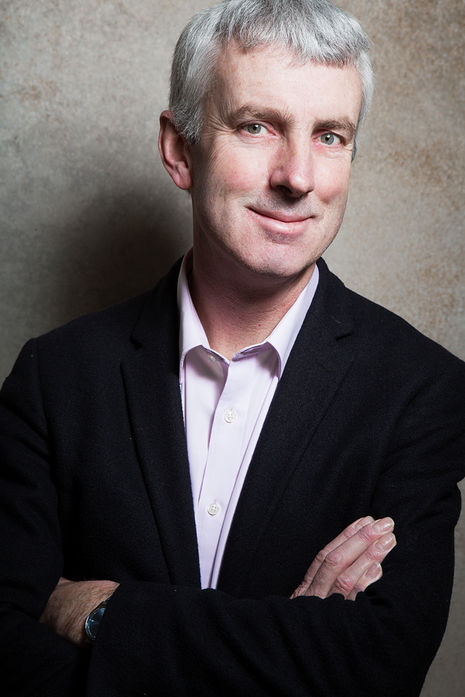Professor Julian Allwood: ‘We cannot rely on technological innovation to solve the climate crisis’
Grace Blackshaw speaks to Professor Allwood about how we can deliver the UK’s commitment to zero emissions by 2050

The climate crisis can feel overwhelming. As deadlines get closer and targets are missed, I can’t help wondering: have we left it too late? What should the government be doing? How should industry adapt? How can I possibly make a difference?
As Professor of Engineering and the Environment, and head of both the Use Less Group and UK FIRES, Julian Allwood is working to answer these questions.
Last November, UK FIRES responded to Theresa May’s changing of the UK Climate Change Act with their report Absolute Zero. As a guide to “delivering the UK’s climate change commitment”, it argued that we cannot rely on technological innovation to solve the climate crisis.
The UK’s original climate change legislation was introduced in 2008 but only committed to reducing the UK’s emissions to 20% of 1990 levels by 2050. However, the government changed their approach last year. “Theresa May listened to the school strikers and the scientists and Extinction Rebellion and rightly changed the act to be a 100% cut in emissions by 2050,” Allwood says.
“We realised that this was so profound that nobody had yet faced up to what it meant. We wanted to give a physical basis to understanding what zero emissions really means.”
In short, Absolute Zero found that the solution is more non-emitting electricity and further electrification. “By 2050, we’ll have one and a half times as much electricity as we have today. All of it will be non-emitting and it will be illegal to use any other form of energy,” Allwood explains.
Based on current projections, this is “about 60% of the energy we’d like to have.” According to Allwood, this is not insurmountable. “Every year since 1990, cars have got heavier, internal temperatures have risen, and we’ve been knocking down buildings and replacing them with gay abandon,” he explains. “Stopping doing some of those things – having lighter cars, driving shorter distances, not heating rooms without people in them – these are not devastating changes.”
The challenge lies in the industries that we cannot currently electrify such as “ruminant meat, flying, shipping and cement”.
“Flying is really interesting because in two generations it’s become a human right, whereas when my parents were your age, it was a luxury.” Contrary to work being done elsewhere in the engineering department, Allwood is clear: “There are no magic technologies to sort out flying.” Absolute Zero argues that all airports should be closed and there be no commercial flights by 2050.
A few months ago, this might have seemed impossible. However, as a result of the coronavirus pandemic, “we’ve seen that, motivated by their own health, people drop flying like a brick.”
“The hardest of all is cement. We currently have no ways of making cement without emissions because the chemistry dictates that if we calcine limestone it releases CO2. The number one priority is to work out how we construct anything because our current law says there will be no cement in use in construction by 2050.”
Asked about how to implement these changes, Allwood is emphatic: “For 20 years we’ve been acting as if the incumbent players, the incumbent industries, the incumbent governments will enact the change. I think we now have complete proof that they won’t. The incumbent industries are making these crazy announcements about being net zero but not putting in a plan to get there. And the government is publishing report after report saying we’ll solve this by innovation. We clearly won’t.”
Instead, Allwood puts his faith in the public: “It has to happen from us as a community and once we start demonstrating we’re prepared to behave in a different way, the government will react to amplify that, but it won’t lead.”
On this subject of influencing public opinion, our conversation turns to the role of Extinction Rebellion. “Broadly speaking, I think they’ve been great,” he says. “I think they have almost made their point. Someone should act and the government isn’t acting fast enough. But so far Extinction Rebellion haven’t meaningfully described who should do what. I fear that if they just keep saying someone should be doing something but don’t say what, they’re going to become irrelevant.”
In general, his derision of those, both in academia and beyond, who look to breakthrough technological developments to solve the climate crisis is clear: “My absolute conviction is that this silly game of pretending that technology innovation will take the problem away is obviously not true.”
For Allwood, this is less about engineering and more about the world we leave to future generations. “If you ask people in the last year of their life, what they think is important for the next generation, none of them mention income. They talk about relationships, family, events, memories, moments in time.” These things do not rely on energy consumption.
And perhaps one of the most important lessons from the coronavirus pandemic will be that these are the things that really matter.
 News / Colleges charge different rents for the same Castle Street accommodation2 March 2026
News / Colleges charge different rents for the same Castle Street accommodation2 March 2026 News / King’s hosts open iftar for Ramadan3 March 2026
News / King’s hosts open iftar for Ramadan3 March 2026 Theatre / Lunatics and leisure centres 4 March 2026
Theatre / Lunatics and leisure centres 4 March 2026 News / Angela Merkel among Cambridge honorary degree nominees27 February 2026
News / Angela Merkel among Cambridge honorary degree nominees27 February 2026 News / News in Brief: waterworks, wine woes, and workplace wins 1 March 2026
News / News in Brief: waterworks, wine woes, and workplace wins 1 March 2026








